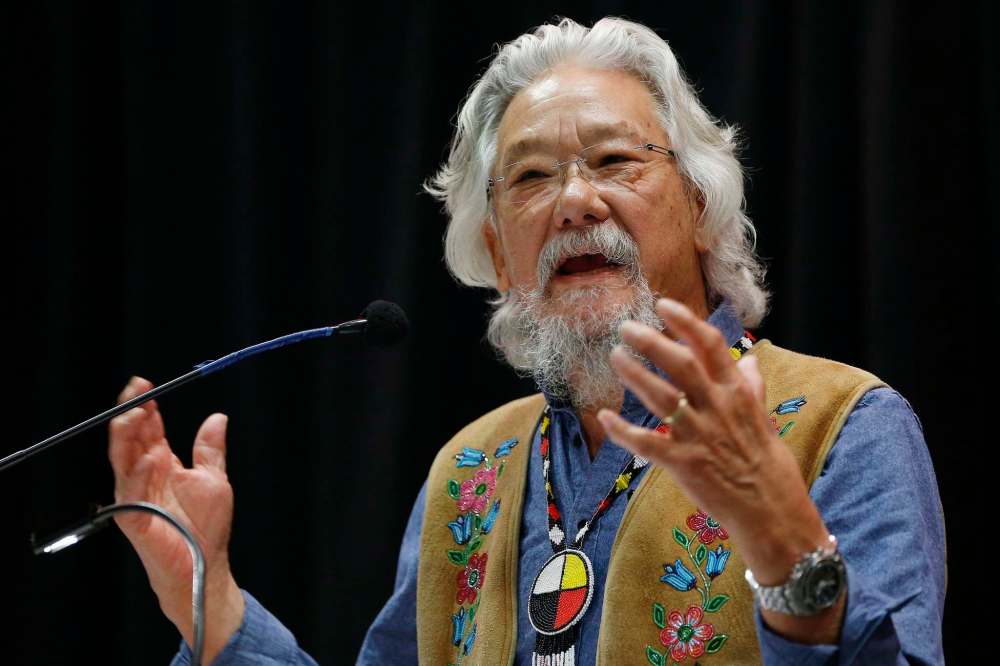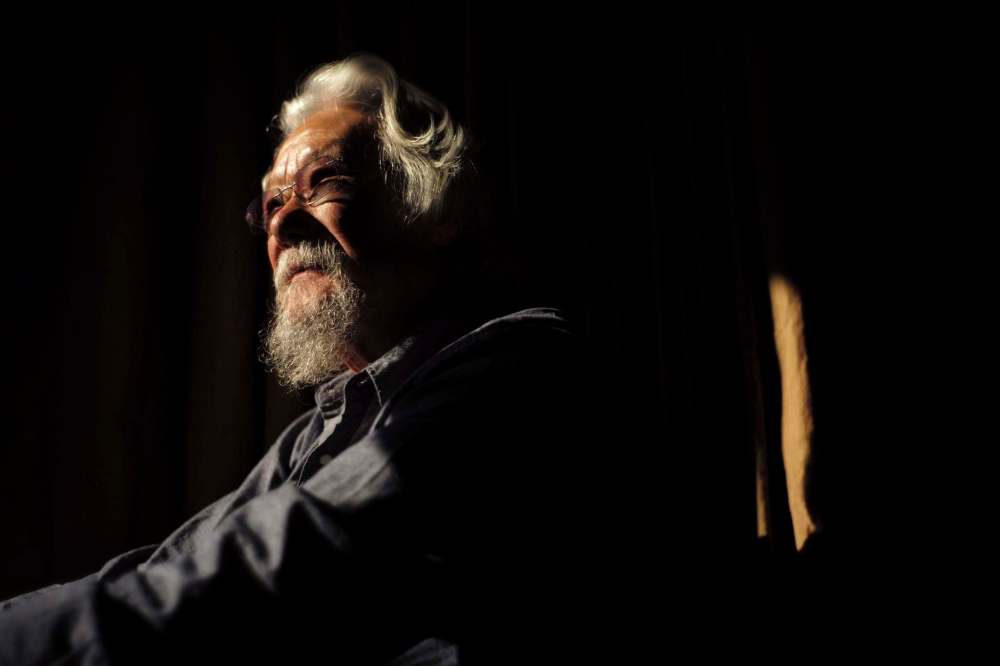Suzuki cheers chiefs for battling to protect environment
Advertisement
Read this article for free:
or
Already have an account? Log in here »
To continue reading, please subscribe:
Monthly Digital Subscription
$0 for the first 4 weeks*
- Enjoy unlimited reading on winnipegfreepress.com
- Read the E-Edition, our digital replica newspaper
- Access News Break, our award-winning app
- Play interactive puzzles
*No charge for 4 weeks then price increases to the regular rate of $19.00 plus GST every four weeks. Offer available to new and qualified returning subscribers only. Cancel any time.
Monthly Digital Subscription
$4.75/week*
- Enjoy unlimited reading on winnipegfreepress.com
- Read the E-Edition, our digital replica newspaper
- Access News Break, our award-winning app
- Play interactive puzzles
*Billed as $19 plus GST every four weeks. Cancel any time.
To continue reading, please subscribe:
Add Free Press access to your Brandon Sun subscription for only an additional
$1 for the first 4 weeks*
*Your next subscription payment will increase by $1.00 and you will be charged $16.99 plus GST for four weeks. After four weeks, your payment will increase to $23.99 plus GST every four weeks.
Read unlimited articles for free today:
or
Already have an account? Log in here »
Hey there, time traveller!
This article was published 29/11/2016 (3318 days ago), so information in it may no longer be current.
This is a critical time for our planet, Dr. David Suzuki told those gathered Tuesday at the Assembly of Manitoba Chiefs Special Chiefs Assembly and Conference on Climate Change and the Environment.
Suzuki spoke passionately before a crowd of indigenous leaders and other conference participants about the human ecological footprint on the earth and the leadership of indigenous people in preserving the earth’s resources.
The three-day conference is being held at the RBC Convention Centre.

“Indigenous people are at the front lines (of environmental battles) because they’re saying we can’t go on with the same old perspectives,” he said, referring to indigenous opposition to pipeline and tar sands development projects due to environmental impacts.
“Your battle is everyone’s battle.”
Over 20 chiefs in attendance from Manitoba and other provinces performed a ceremonial signing of a Treaty Alliance Against Tar Sands Expansion “for the protection of Mother Earth.” The treaty was explained as binding the First Nations together to “protect against threats to land, water, air and climate.”
The Treaty Alliance Against Tar Sands Expansion, officially launched on Sept. 22 in Quebec and BC, prohibits pipelines, trains and tankers that are part of the Alberta Tar Sands expansion from passing through the territories of the those First Nations whose leaders signed it.
“I don’t see a day where our people will consent to the destruction of the land, destruction of the water. I just don’t see it,” Manitoba Grand Chief Derek Nepinak said.
The treaty alliance has already been signed by indigenous leaders from across Canada, such as Grand Chief Stewart Philip of the Union of B.C. Chiefs, and some from the Northern USA.
“There are no jobs on a dead planet. And there is no planet B,” Philip said. “I’ve always believed that when we get up in the morning and look out our kitchen window, we cannot take for granted what we see. This world is changing, in a very dramatic fashion, with respect to global warming and climate change. We need to be deeply gravely concerned, right this minute, with respect to what the further impacts are going to be.”
Suzuki said the challenge is to the push through the “clash of perspectives” between the environment impacts and the economic benefits of the various development projects.
He said nature can’t be changed but humans “can change the institutions that we construct.

“That is the challenge that we face today. Showing that nature is the source of our health and happiness …other human constructs have to find ways to fit into nature’s needs,” Suzuki said, listing the economy, corporations and capitalism as human constructs.
“That should be the foundation of the way we live, clean air, clean water, clean soil, clean energy and a diverse variety of living things.”
His speech took the audience through human evolution – “we (humans) are an invasive species” – the last ice age, nomadic hunter gatherers, the roots and leadership of indigenous knowledge.
“Indigenous knowledge is the most profound source of knowledge on this planet and will never be replaced by science,” Suzuki said.
ashley.prest@freepress.mb.ca
History
Updated on Tuesday, November 29, 2016 3:58 PM CST: Updated.

